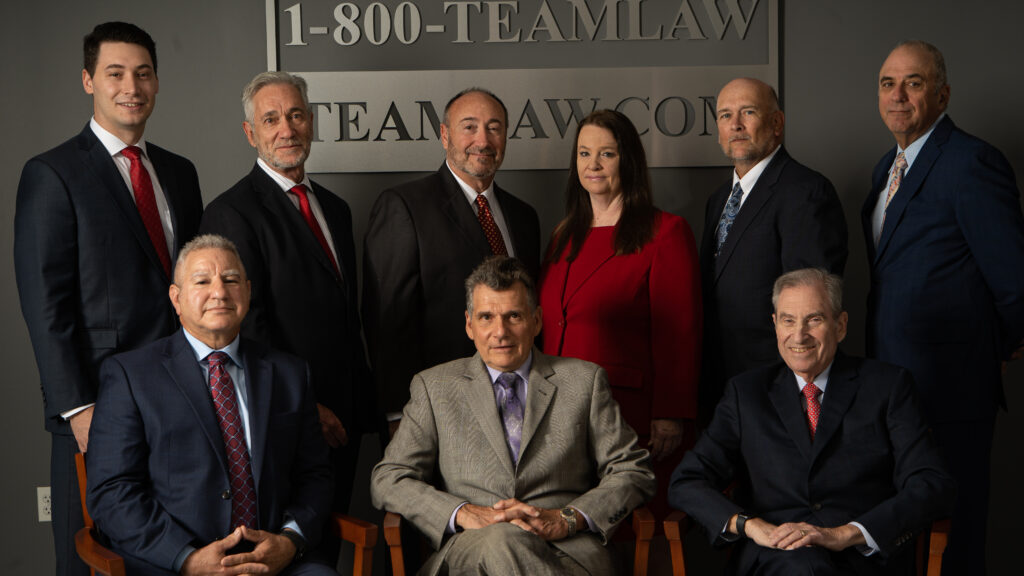New Jersey Postoperative Care Malpractice Lawyers
Check out our reviews

Reputable Medical Malpractice Lawyers Fight for Clients Harmed by Postoperative Care Malpractice Across New Jersey
The potential for serious surgical complications is not eliminated when a patient leaves the operating table. In fact, some of the most serious surgical complications arise in the postoperative phase. Proper medications, monitoring, and sanitization are all critical to a patient’s successful postoperative recovery. When doctors, nurses and others fail to perform according to the medical standard of care, victims may have a claim for postoperative care malpractice under New Jersey law. At Team Law, we employ over 60 years of experience on a daily basis to help postoperative care malpractice victims obtain maximum compensation for the harm they have suffered. Our New Jersey postoperative care malpractice lawyers have been recognized as “Super Lawyers” and as among the best trial lawyers in the nation. However, what we really pride ourselves on is recognition from the clients we have helped.
Your medical provider’s duty to satisfy the applicable medical standard in providing care does not end simply because your surgical procedure was successfully completed. The medical malpractice lawyers at Team Law are here to make sure healthcare providers are held fully responsible for negligent postoperative care.
Actions as simple as sanitizing medical equipment or monitoring a patient’s vitals on a machine after surgery can prevent devastating medical consequences. If you or a loved one were harmed by this type of medical negligence, contact our lawyers today. We will thoroughly review your case with you to determine whether you may have a valid legal claim for postoperative care malpractice under New Jersey law.
Get Advice From An Experienced Postoperative Care Malpractice Lawyer. All You Have To Do Is Call 1-800-832-6529 To Receive Your Free Case Evaluation.
Medical Professionals’ Duty to Monitor Patients to Prevent Postoperative Malpractice
After surgery, most patients are required to remain within the hospital or medical facility for a period of time for postoperative care. Postoperative care generally means making sure that the patient is responding appropriately to the surgery. Monitoring within the hospital can be crucial to allowing doctors to respond to any complications immediately.
After surgery, the surgeon provides instructions to nurses and other staff members. Those instructions should include information about:
- Monitoring the patient’s vital signs,
- Monitoring things like urine output,
- Monitoring for signs of infection,
- Cleaning the surgical incision site,
- Medications that can be used to control pain,
- The patient’s activity level,
- Medications that the patient should receive to treat the medical condition or known risks associated with the surgery,
- Any follow-up testing that the patient will require.
One of the most dangerous complications that can arise because of failure to provide proper postoperative care and monitoring is infection. Once an infection like a staph or MRSA infection sets in, the results can be devastating. It’s up to the medical staff to take steps to prevent infection in postoperative patients, who are especially vulnerable. Additional postoperative complications that can result from negligent care include:
- Medication errors,
- Adverse anesthesia reactions,
- Postoperative bleeding,
- Blood clots, which can result in heart attack, stroke or pulmonary embolism.
Medical Malpractice
$5.6 Million Verdict
Trusted Malpractice Lawyers Help Clients Navigate Complex Issues in New Jersey Postoperative Care Malpractice Cases
Establishing your right to compensation for postoperative care malpractice is not as simple as showing that you emerged from surgery fine, only to suffer an infection or some other harm in the post-op phase. It’s also necessary to:
- Establish the applicable standard of care—meaning what a reasonable medical professional would have done under the circumstances.
- Determine what the healthcare provider did or didn’t do to cause harm in the postoperative phase.
- Prove a direct causal link—meaning proving that the postoperative complication was directly caused by the negligence, rather than some other factor.
Only after we have proven these elements can we go on to argue for your right to be compensated for the damages caused by the postoperative care malpractice. At Team Law, our highly skilled lawyers work with top medical experts in the field whose testimony can be critical in proving the elements of a medical malpractice case.
Find Out What Your Case Is Worth – Call 1-800-TEAM-LAW or Fill Out Our Free Case Evaluation Form.
At Team Law, we are committed to building the strongest possible case for compensation for our injured clients. In a postoperative care malpractice case, you may be entitled to compensation for:
- Ongoing medical expenses,
- Rehabilitation costs,
- Additional surgeries,
- Lost wages or loss of your ability to work,
- Pain and suffering,
- Emotional distress,
- And more.
Unfortunately, the insurance companies that are ultimately responsible for paying compensation for postoperative malpractice will do everything they can to minimize your compensation award. At Team Law, our medical malpractice lawyers are well-versed in the tactics these companies will use to reduce your award. We’re here to counter those tactics. We present your case in a strategic, favorable light to make sure you get the compensation you deserve.
Harmed by Postoperative Care Malpractice? Schedule a Free Consultation to Learn About Your Legal Rights in New Jersey

At Team Law, our medical malpractice lawyers are passionate about obtaining full compensation to hold negligent healthcare providers accountable. When you choose Team Law, you don’t just hire a single lawyer to handle your case. You retain a team of dedicated, compassionate lawyers and support staff who are committed to getting you the compensation you need.
If you or a loved one were harmed by negligent postoperative care, call our office or contact us online for a free initial consultation. We will listen to what happened, review any documents you bring and discuss the possibility of bringing a postoperative care malpractice claim.
Frequently Asked Questions About Postoperative Care Malpractice Claims in New Jersey
Often, nurses and other support staff are tasked with carrying out the surgeon’s postoperative instructions. That does not mean that the surgeon cannot be held responsible. The responsible party will depend upon the specific facts of your case. Maybe the doctor gave improper instructions or the nurse failed to follow proper instructions. Most often, the hospital or medical facility will be liable for the actions of employees. In some cases, however, the surgeon, as an independent contractor, will be responsible. Ultimately, however, it is the party’s insurance company that will pay compensation.
Infection and blood clots are two of the most common consequences of postoperative malpractice. Blood clots are particularly common because many surgical patients spend a significant amount of time lying in one place during postoperative recovery. Blood clots often form in the legs and travel through the body to cause serious harm. They’re frequently a subject of postoperative malpractice suits because the hospital staff can take any number of simple measures to prevent them—from using compression stockings, light exercise or even medications.

Team Law is outstanding. Everyone is courteous and knowledgeable and I felt that I got the personal attention that I needed.
what our clients are saying CALL NOW
CALL NOW





